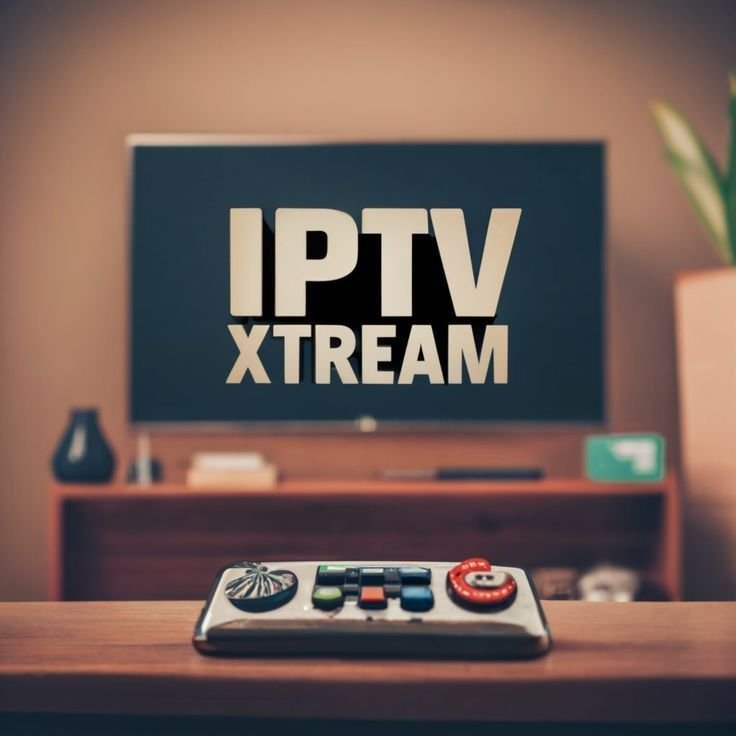Table of Contents
Introduction
What is HD IPTV?

High-Definition Internet Protocol Television, or IPTV, represents the cutting-edge of digital television delivery. It leverages the power of the internet to provide viewers with high-definition (HD) content, surpassing traditional cable and satellite services in both quality and flexibility. As more households seek superior viewing experiences, IPTV has become a popular choice for its ability to deliver crystal-clear images and immersive sound.
In this comprehensive guide, we will delve into the world of IPTV, exploring its technology, benefits, and how to set it up. Whether you’re a tech enthusiast or just looking to enhance your home entertainment, this guide will provide you with everything you need to know about IPTV.
Understanding HD IPTV
Definition of HD IPTV
IPTV refers to the delivery of television content via internet protocol (IP) in high-definition quality. Unlike traditional broadcasting methods, which rely on satellite or cable, IPTV uses the internet to stream content. This allows for a more flexible and interactive viewing experience, with features such as on-demand programming and the ability to pause, rewind, or fast-forward live TV.
The term “HD” in IPTV stands for “High Definition,” indicating that the content is delivered in a higher resolution than standard-definition (SD) TV. HD content offers more detail, richer colors, and sharper images, providing a superior viewing experience. To enjoy IPTV, viewers typically need a compatible device, such as a smart TV, set-top box, or a streaming device that supports HD quality.
How Does HD IPTV Work?
The technology behind IPTV involves several key components. At its core, IPTV uses a process called “streaming” to deliver content over the internet. Here’s a simplified breakdown of how it works:
- Content Delivery: HD content is encoded into IP packets and transmitted over the internet. This can include live broadcasts, movies, and TV shows.
- Set-Top Box or Streaming Device: The viewer’s device, such as a set-top box, smart TV, or streaming stick, receives these IP packets. The device decodes the data and displays the video on the screen.
- Internet Connection: A reliable, high-speed internet connection is crucial for IPTV. The quality of the streaming experience depends on the bandwidth available. Higher speeds ensure smooth playback with minimal buffering.
- Middleware: This is the software platform that manages the IPTV service. It handles tasks such as channel selection, user authentication, and interactive features like video-on-demand (VOD).
Overall, HD IPTV provides a more flexible and dynamic viewing experience compared to traditional TV, making it a popular choice for modern consumers.
Benefits of HD IPTV
Advantages of HD IPTV Over Traditional TV
HD IPTV offers several advantages over traditional cable and satellite TV services:
- Superior Quality: IPTV delivers content in high definition, providing sharper images and better sound quality. This is especially noticeable on larger screens where every detail counts.
- More Content Options: With IPTV, viewers have access to a wider range of channels and on-demand content. This includes international channels, niche genres, and exclusive programming not available on traditional TV.
- Flexibility and Convenience: IPTV allows for greater flexibility in how and when content is consumed. Features like catch-up TV, pause, rewind, and fast-forward make it easier to fit viewing around busy schedules.
- Cost-Effective: IPTV services can often be more affordable than traditional cable or satellite subscriptions, especially when considering the range of content available.
- Interactive Features: IPTV platforms often include interactive features, such as electronic program guides (EPGs), personalized recommendations, and interactive ads.
Enhanced Viewing Experience with HD IPTV
One of the most compelling reasons to switch to IPTV is the enhanced viewing experience it offers. The transition from standard-definition to high-definition is significant, particularly for sports, movies, and nature documentaries, where visual detail and color accuracy are crucial.
Visual Clarity and Detail: HD content provides much higher resolution compared to SD, offering four to five times more pixels. This means clearer images, more detailed textures, and a more immersive viewing experience.
Improved Audio Quality: In addition to better visuals, HD IPTV often includes enhanced audio quality, such as Dolby Digital sound, which provides a richer and more immersive audio experience.
Immersive Experience: Whether watching a live sports event, a blockbuster movie, or a breathtaking nature documentary, HD IPTV brings the experience to life. The improved clarity and detail make viewers feel like they’re part of the action.
HD IPTV Services and Providers

Top HD IPTV Providers
When choosing an IPTV provider, it’s important to consider factors like channel offerings, pricing, and customer support. Here are some of the top HD IPTV providers available:
| Provider | Key Features | Pricing |
|---|---|---|
| Provider A | Over 500 channels, HD and 4K content, VOD available | $20/month |
| Provider B | Extensive sports package, multi-device support | $15/month |
| Provider C | Free trial, international channels, 24/7 support | $25/month |
| Provider D | Affordable plans, simple interface, reliable service | $10/month |
These providers offer a range of packages and features, making it easier for viewers to find a service that suits their needs and budget. It’s also advisable to look for providers that offer a free trial, allowing users to test the service before committing.
Free vs. Paid HD IPTV Services
When exploring IPTV options, viewers often face the choice between free and paid services. Both have their pros and cons:
Free HD IPTV Services:
- Pros:
- Cost-free access to a variety of channels
- No subscription fees
- Cons:
- Limited channel selection
- Lower quality streams
- Potential legal issues and lack of support
Paid HD IPTV Services:

- Pros:
- Higher quality streams, including HD and 4K options
- Access to a wider range of channels and content
- Better customer support and reliability
- Cons:
- Monthly or annual subscription fees
While free services can be tempting, paid services generally offer a more reliable and higher-quality experience, with better support and a broader selection of content.
Setting Up HD IPTV
Requirements for HD IPTV
To enjoy HD IPTV, there are a few key requirements to consider:
- High-Speed Internet: A stable and fast internet connection is crucial for HD streaming. A minimum of 5 Mbps is recommended for HD content, while 25 Mbps or more is ideal for smooth, buffer-free viewing.
- Compatible Devices: IPTV can be accessed on various devices, including smart TVs, set-top boxes, streaming sticks (e.g., Roku, Amazon Fire Stick), computers, smartphones, and tablets.
- Subscription to an IPTV Service: A subscription to an IPTV service provider is necessary to access content. Some providers offer apps for easy access on different devices.
- Router and Networking Equipment: For the best experience, ensure your home network is optimized for streaming. A good quality router and wired connections (Ethernet) can help maintain stable speeds.
How to Set Up HD IPTV

Setting up HD IPTV is relatively straightforward. Here’s a step-by-step guide:
- Choose a Provider: Select an IPTV service provider that meets your needs. Consider factors like channel selection, pricing, and device compatibility.
- Subscribe to the Service: Sign up for a subscription plan. Many providers offer monthly, quarterly, or annual plans. Some may also provide a free trial.
- Install the App or Set-Top Box: Download the provider’s app on your device or set up the set-top box. Follow the installation instructions provided by the provider.
- Log In and Activate: Log in with your account credentials and activate your subscription. This may involve entering an activation code or following on-screen prompts.
- Configure Settings: Adjust settings such as video quality, parental controls, and language preferences according to your needs.
- Enjoy HD Content: Start exploring the available channels and on-demand content. Use the electronic program guide (EPG) or search feature to find your favorite shows and movies.
HD IPTV Content and Channels
Types of Content Available on HD IPTV
IPTV services offer a wide range of content, catering to various interests and preferences. Some of the popular types of content include:
- Movies: Access to a vast library of movies, including the latest releases, classics, and international films.
- TV Shows: Popular TV series, reality shows, dramas, and comedies from around the world.
- Sports: Live sports events, highlights, and dedicated sports channels covering football, basketball, tennis, and more.
- News: Local, national, and international news channels providing up-to-date information.
- Documentaries and Nature: In-depth documentaries and nature programs in HD, offering stunning visuals and educational content.
- Music and Entertainment: Music channels, concerts, and entertainment shows.
Finding and Accessing HD IPTV Channels
Navigating through the vast array of channels and content available on IPTV can be overwhelming. Here are some tips to help you find and access IPTV channels:
- Electronic Program Guide (EPG): Most IPTV services offer an EPG, which is a digital TV guide that provides information about current and upcoming programs. This makes it easier to plan your viewing schedule.
- Search and Filters: Use the search feature to find specific channels, shows, or movies. Filters can help you narrow down your options based on genre, language, or other criteria.
- Favorites and Playlists: Create a list of your favorite channels or programs for quick access. Some services also allow you to create playlists of on-demand content.
- Catch-Up TV: Missed a show? Many IPTV services offer catch-up TV, allowing you to watch programs that aired recently.
HD IPTV on Different Devices
Watching HD IPTV on Various Devices
One of the biggest advantages of IPTV is its versatility across different devices. Here’s how you can enjoy IPTV on various devices:
- Smart TVs: Many modern smart TVs come with built-in IPTV apps or support for apps like Netflix, Hulu, and others. Simply download the IPTV app and log in with your credentials.
- Set-Top Boxes: Devices like Roku, Amazon Fire TV, and Apple TV provide access to IPTV apps. These boxes are easy to set up and offer a user-friendly interface.
- Computers: You can watch IPTV on a desktop or laptop by accessing the provider’s website or using dedicated apps. This is ideal for those who prefer a larger screen and keyboard for navigation.
- Smartphones and Tablets: IPTV is also accessible on mobile devices. This is perfect for watching on the go. Most providers offer apps for both Android and iOS devices.
Mobile HD IPTV Viewing

Mobile HD IPTV viewing offers flexibility and convenience, allowing you to watch your favorite content anywhere with an internet connection. Here are some considerations:
- Data Usage: HD streaming can consume a significant amount of data. Be mindful of your data plan and consider downloading content for offline viewing if available.
- Screen Size and Quality: While smartphones and tablets offer portability, the smaller screen size can impact the viewing experience. Consider using a tablet for a larger display.
- Recommended Apps: Look for IPTV apps with a user-friendly interface, good reviews, and regular updates. Popular options include IPTV Smarters, TiviMate, and Perfect Player.
Legal and Ethical Considerations
Is HD IPTV Legal?
The legality of HD IPTV services can vary depending on the source of the content. Here’s a breakdown:
- Licensed IPTV Services: Services that have legal rights to broadcast content, such as Netflix, Hulu, and official IPTV providers, are legal. They operate under agreements with content creators and broadcasters.
- Unlicensed IPTV Services: Some IPTV services offer free or cheap access to copyrighted content without proper licensing. These services are illegal and can pose risks, including legal consequences and security vulnerabilities.
Ethical Considerations in Using IPTV
Using illegal IPTV services not only violates copyright laws but also affects content creators and the industry. Here’s why:
- Impact on Content Creators: Piracy reduces revenue for creators, affecting their ability to produce quality content.
- Security Risks: Illegal IPTV services can expose users to malware, phishing, and other cyber threats.
- Supporting Legal Services: Choosing licensed services supports the entertainment industry and ensures that creators are compensated for their work.
Future of HD IPTV
Emerging Trends in HD IPTV
The future of IPTV looks promising, with several emerging trends shaping the industry:
- 4K and Ultra HD Content: As technology advances, more IPTV services are offering 4K content, providing even better visual quality than HD.
- Integration with Smart Home Technology: IPTV services are increasingly integrating with smart home devices, allowing users to control their TV experience with voice commands and smart assistants.
- Interactive Features: Enhanced interactivity, such as live chat, interactive ads, and personalized content recommendations, is becoming more common.
The Evolution of IPTV Technology
The evolution of IPTV technology has been rapid, with continuous improvements in both content delivery and user experience. Some key developments include:
- Higher Bandwidth and 5G: The rollout of 5G networks promises faster and more reliable internet connections, making HD and 4K IPTV more accessible.
- Cloud-Based IPTV: Cloud technology is enabling more efficient content delivery and storage, reducing buffering and improving reliability.
- AI and Machine Learning: These technologies are being used to personalize content recommendations, enhance search capabilities, and improve user interfaces.
Conclusion
Final Thoughts on IPTV
HD IPTV represents the future of television, offering unparalleled quality and flexibility. As internet speeds increase and technology advances, IPTV services are poised to become the standard for home entertainment. Whether you’re a sports fan, movie lover, or TV enthusiast, IPTV provides a superior viewing experience that traditional cable and satellite services can’t match.
With the comprehensive guide above, you now have all the information you need to explore and enjoy IPTV. Remember to choose a reputable provider, set up your equipment correctly, and enjoy the wealth of content available at your fingertips.
FAQs about HD IPTV
What is the difference between and 4K IPTV?
HD IPTV provides content in 720p or 1080p resolution, while 4K IPTV offers four times the resolution of 1080p, resulting in sharper images and more detail. 4K is particularly beneficial for larger screens where higher resolution can be fully appreciated.
Can I watch HD IPTV on a regular TV?
Yes, you can watch IPTV on a regular TV, provided it has an HDMI port. You may need a set-top box or streaming device to access IPTV content. However, to fully enjoy HD quality, an HDTV is recommended.
How much internet speed do I need for HD IPTV?
For a smooth IPTV experience, a minimum internet speed of 5 Mbps is recommended. For better performance and to avoid buffering, 10-15 Mbps is ideal, especially if multiple devices are connected to the same network.

Is IPTV better than traditional cable TV?
IPTV offers several advantages over traditional cable TV, including higher quality content, more flexibility, and a wider range of channels and on-demand options. However, it requires a reliable internet connection and can be affected by network issues.
